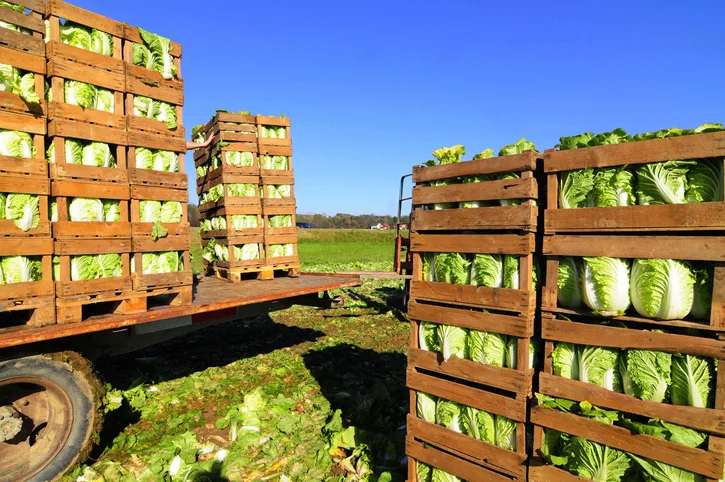Food logistics should benefit from UK-EU deal
The UK and the EU have agreed a substantial package set out in the Joint Statement; Common Understanding, and Security and Defence Partnerships which covers a broad range of areas.

MOST NOTABLY, the deal seeks to ease food imports and exports.
The EU is the UK’s largest agri-food market, but since Brexit exports are down 21% and imports down 7% (2018-2024). Many businesses have scaled back or stopped trading altogether due to increased costs, paperwork and delays at borders.
In a statement, the UK Government said: “We have agreed with the EU to deliver a agri-food deal which will establish a UK-EU Sanitary and Phytosanitary Zone, and mean
removal of Export Health Certificates, saving businesses up to £200 per consignment each time goods are sent. This means a single lorry carrying a mixed load of animal products could see £1000s in reduced costs.”
Commenting on the announcement, Steve Parker, director general of the British International Freight Association (BIFA) said: “BIFA members, and the importers and exporters that they serve, will be breathing a sigh of relief following practical commitments to improve regulatory cooperation.
“On behalf of its members, BIFA has long called for more facilitated solutions in regards to how the UK trades with the EU, and finally there has been some progress on this.
“Freight forwarding and logistics businesses, which manage a significant proportion of the UK’s visible supply chains with the EU, will be especially pleased with the announcements of cooperation on Sanitary and Phytosanitary (SPS) measures, which should cut costs, complexities and delays that disrupt trade flows.”
The Cold Chain Federation welcomed the announcement that current border restrictions on medium risk food products are to be simplified.
CEO Phil Pluck said: “A relaxation of veterinary certification is a very welcome move for the cold chain sector and for food producers. If this transition is handled efficiently, then it bodes well for a journey back to common borders on food movement. For forty years food movement across the channel between the UK and mainland EU has been efficient, cost effective and safe.
“The current arrangements have not improved food safety but have created a massive administrative and cost increase. This seems like a good first step towards a more pragmatic and shared food movement protocol.”
Not everyone in food logistics is pleased with the new deal. To those who invested heavily to pivot to the post-Brexit arrangements, the new deal appears to make that effort a waste of time and money.
PML Seafrigo CEO UK & Ireland, Mike Parr, says many companies, including PML Seafrigo, have worked tirelessly to try and remain ahead of the curve and to be ‘Brexit fit’.
He says: “Yesterday’s EU reset announcement makes a mockery of the last nine years. During this period, businesses in the supply chain associated with the fresh produce industry have put a huge amount of time, effort – not to mention significant financial investment – to establish appropriate protocols within the new Brexit trading landscape.
“Producers, logistics suppliers, industry stakeholders and government representatives attended countless meetings to work towards a solution which would allow a fair and seamless transfer of produce into and out of the UK. To say this has been a difficult road to travel is an understatement. The challenging number of U-turns, the persistent failure to listen to those working within the sector, the inability to meet deadlines, the constant whitewashing to suit each government’s agenda…”
PML invested in a transport and logistics hub with remote HMRC / Defra approved Border Control Post status. The site incorporated specialist inspection amenities for Defra personnel. The firm was at the front of the queue to apply for training to acquire Authorised Operator Status.
Mike adds: “Just two weeks ago, discussions were held regarding the much-anticipated plant health border checks, due to commence on July 1. Baroness Hayman insisted there was to be no easement on the deadline and that the new required checks would be rolled out.
“And now the Prime Minister has acted unilaterally to reset the rules. We are faced with the biggest U-turn of them all. And true to form, without any firm guidance to those affected most. There are no specific timings on when the new SPS protocol will start which will cause further bedlam at the border. In the absence of clear guidance, do we default to the original BTOM plans due to come into effect on 1st July or are we able to kickstart the Authorised Operator Status scheme? Is the government planning to roll out official inspections throughout a 24/7 window?
“Has the government given any thought as to how businesses might be reimbursed for all the time and money spent on working towards the original Brexit plan?”



